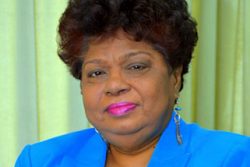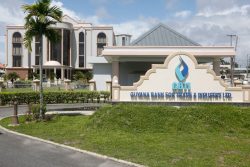UNITED NATIONS (Reuters) – Myanmar’s government says it is not worried opposition leader Aung San Suu Kyi will upstage the president during their overlapping US visits because they work together for democracy, just as Nelson Mandela did with South Africa’s last apartheid-era leader.
Aung Min, a minister in President Thein Sein’s office, said yesterday that the government was “very proud” of Nobel Peace Prize laureate Suu Kyi, who this week in Washington was awarded the Congressional Gold Medal for her fight for democracy.
Suu Kyi – who championed democracy in opposition to Myanmar’s military junta during 17 years under house arrest – is on a coast-to-coast US tour. Thein Sein will visit New York to speak at the UN General Assembly on Thursday.
“We don’t worry about that,” Aung Min told reporters at the United Nations in New York, when asked if Suu Kyi could outshine the president during their visits to the United States.
Suu Kyi struck a conciliatory note herself during a visit to the United Nations to meet Secretary-General Ban Ki-moon yesterday, saying she and Thein Sein had to “learn to work together.”
The president has won international praise for driving reforms in the 18 months since the military ceded power. The former military heavyweight has freed more than 650 political prisoners, scrapped media censorship and introduced broad economic liberalization.
“The president alone cannot undertake all democratic reforms. I don’t think Daw Aung San Suu Kyi alone can accomplish everything either. But the president and Daw Aung San Suu Kyi will have to work together,” Aung Min said.
“When you look at South Africa, Nelson Mandela alone could not have achieved what South Africa has managed to achieve. It was mainly because Mr Mandela and Mr de Klerk, they worked together,” he said.
South Africa’s last apartheid-era president, FW de Klerk, received the Nobel Peace Prize – jointly with Mandela – in 1993 for releasing Mandela from prison in 1990 and allowing multi-racial elections four years later. Mandela became South Africa’s first black president in 1994.
Myanmar was ruled by army generals starting in 1962. Pro-democracy protests in 1988 led to elections in 1990 won by Suu Kyi’s National League for Democracy, but the generals refused to step down. Suu Kyi was freed from house arrest in 2010 and elected to parliament in April this year.
Ban yesterday described Suu Kyi as a “symbol of human rights.” Her last stay in the United States was in the 1970s as a UN employee.
“I pay my great tribute to President Thein Sein and Daw Aung San Suu Kyi,” the secretary general said. “They have been walking together down the path of reconciliation and political stability and democracy and human rights, and I really count on her continuing support.”






